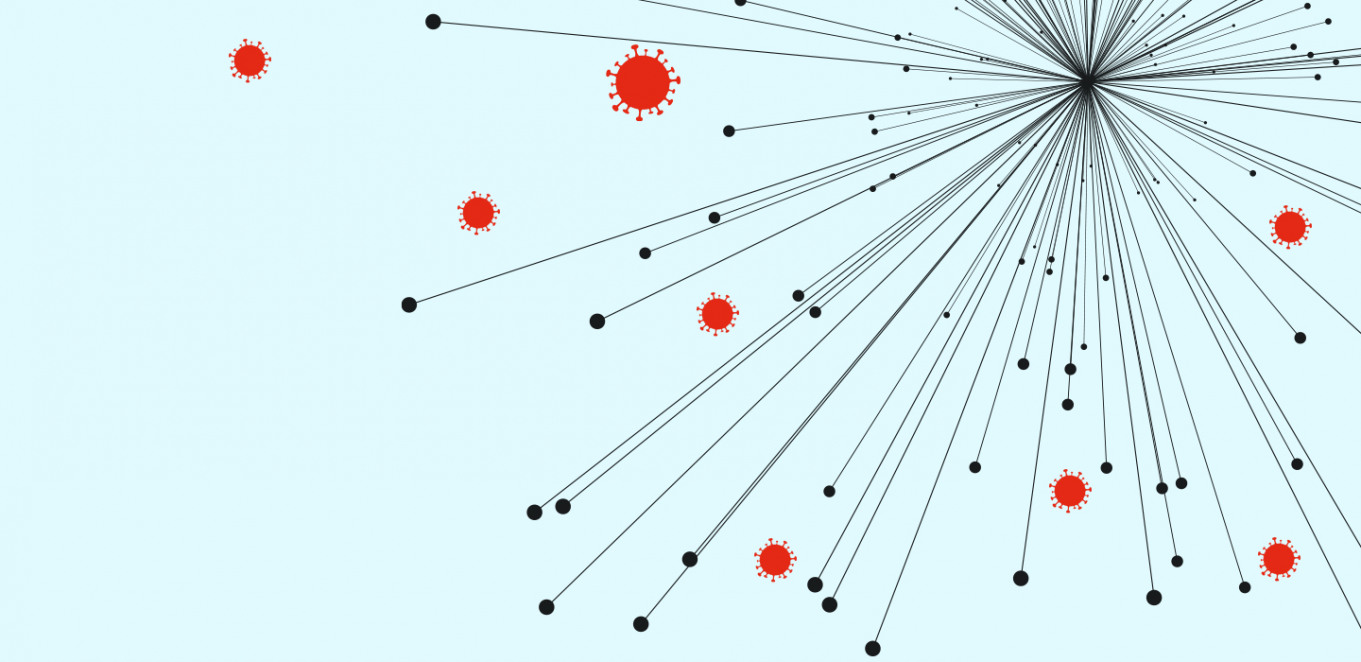##mainParagraph##

Text Ingo Schünemann
The worldwide lockdown at the end of March initially marked the end of an international willingness to help. With the closing of borders, global solidarity in health cooperation ended just when it was most needed.The worldwide lockdown at the end of March initially marked the end of an international willingness to help. With the closing of borders, global solidarity in health cooperation ended just when it was most needed.
To this day, China’s information policy continues to conceal how the virus started. For US President Donald Trump, COVID-19 was a foreign virus, and the German government imposed an export ban on face masks at the beginning of March. A gesture that was watched very closely in the particularly hard-hit countries. If urgently required help is not given, then sworn friendship between nations looks like it is all only for show. People seem to mostly care about those who are close to them. People are “limited creatures”, as the Dutch philosopher Rutger Bregmann puts it. And the limitations of collective compassion seem to lie at the borders of nation states – if not even closer.
In the first few weeks politicians worldwide caused a lot of damage by pursuing national interests. The unknown nature of the virus, the rapidly approaching potential pandemic catastrophe, led politicians to then cede responsibility. They cannot be blamed, because politicians are usually not epidemiologists. And what may appear to some to be a sign of political incompetence can in this case be called a stroke of luck: The power to act has fallen to scientists, whose natural disposition is towards an unfettered exchange of knowledge. And in this pandemic, quickly implemented global strategies were needed.
Due to time constraints, the researchers made their data and analyses about COVID-19 available to the global scientific community on preprint servers, prior to the usual peer-reviewed publication. This enabled other scientists to use data that had not already been verified to speed up research into for example developing a vaccine. A move that cannot be overestimated: The scientists have exposed themselves to the risk of publishing non-valid, erroneous research data. An example from Germany is the pre-publication of the Heinsberg study by Bonn-based virologist Hendrik Streeck. He came in for a lot of criticism from his colleagues because the results were not fully developed. However, due to the urgency of the situation, that was exactly what was necessary: an exchange of ideas in a scientific community that is interested in the common good.

“A global crisis that helps to overcome particular interests”
Rutger Bregman,
philosopher, historian, and author
Rutger Bregman therefore sees an opportunity in this crisis. He sees a new era dawning, in which the practice of multilateral cooperation will gain in global validity. According to Bregman, the coronavirus era will possibly be seen as a turning point in the future, as a global crisis that helped to overcome particular interests. There are signs that this vision is already becoming a reality: UNESCO has coordinated the exchange between interested national science ministers during the pandemic and has formulated an international legal text on “Open Science”. At the last meeting of the GAVI Impact Alliance, which aims to provide poor countries with access to comprehensive vaccinations, the 32 donor countries pledged more money than ever before. The WHO’s global sustainability goal of defeating diseases such as AIDS and malaria, which still kill hundreds of thousands of people every year, by 2030 seems to be within reach. And in science, too, digital communication in many new formats is being used more than ever before.
Experimental laboratories of communication
But despite all the positive thinking, we should not close our eyes to the fact that at this very moment vaccines against the COVID-19 virus are not being produced in a single collaborative effort. The WHO counted 176 vaccine projects at the beginning of September. The most promising research is being conducted by large pharmaceutical companies, especially in the United States, Russia, China, and the EU. It is a fallacy to assume that companies in Europe act more altruistically than those in the US or China. It is a global race that can lead to unimaginable profits. This need not even be a regrettable state of affairs, because a functioning competition leads to better results. However, it is the task of politicians to ensure fair competition and, where possible, to promote scientific cooperation, for example by networking international centres of excellence, such as those being promoted by Germany’s DAAD, or with the recent call for proposals for “Experimental Science Communication Laboratories” in Berlin. The call is aimed at scientists from the Berlin University Alliance and supports the development of new communication formats that can be used for collaborative projects across universities. Science is thus relying on discourse instead of argumentative compartmentalization. All stakeholders can learn from the spirit of open science in order to be better prepared for global crises.




